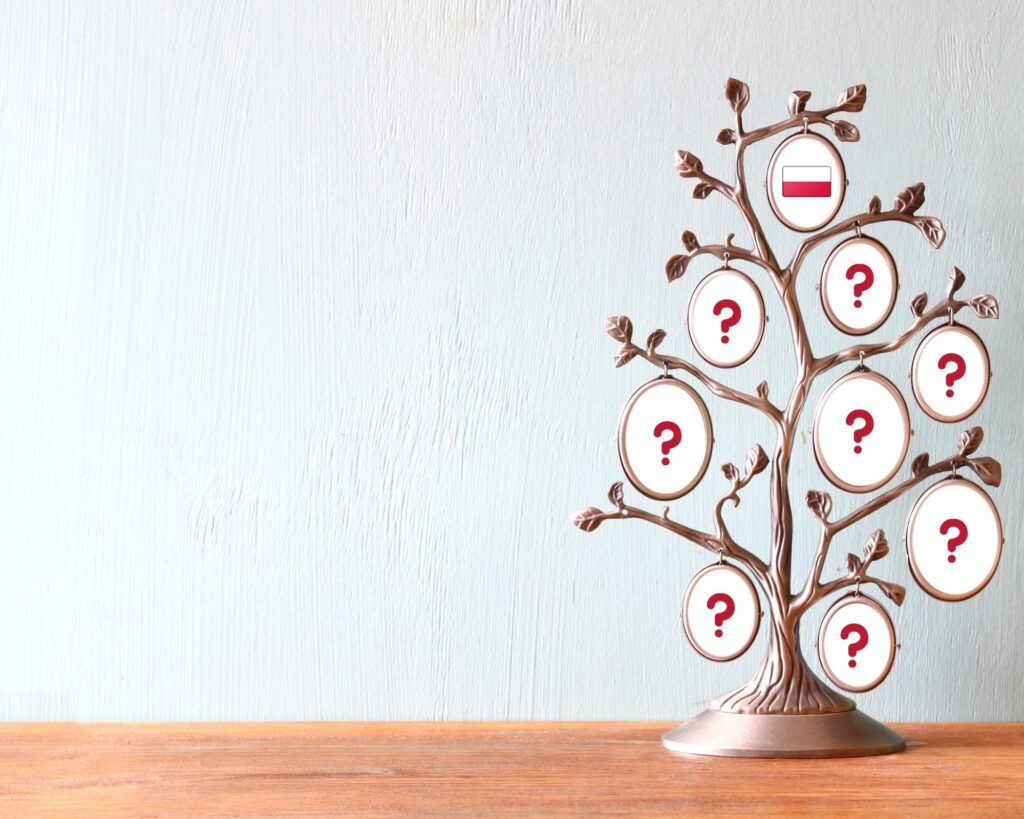We, humans, have this urge to know where we are from and where we are going. To understand who we are and to know our roots. Sooner or later, many of us may want to learn more about our ancestors, and discovering their stories often becomes a fascinating experience.

What if the traces of your family history lead to Poland?
The whirlwind of Polish history forced many people to move abroad. They started their lives over in a different reality, often losing touch with their relatives in Poland. Decades or even centuries later, their descendants want to learn as much as possible about the lives of their Polish ancestors, try to find places where their Polish family used to live, visit cemeteries where their family members are buried or even meet their living relatives. Is that possible?
This kind of genealogical research often ends in success. Sometimes people even manage to find their Polish relatives and establish new bonds. Each and every story is different, fascinating, full of emotions for all the people who are involved. But is it always possible to discover the story of your ancestors in Poland?
Why is genealogical research in Poland difficult?
There are a number of factors that make genealogical research in Poland complicated, and it is generally a good idea to contact an experienced researcher, who will evaluate the information that you already have, and advise you on the possibilities of proceeding with your research.
Misspelled Polish names
To start off, you need to collect as much data about your Polish ancestors as possible. Names of people and places, photos, documents, anything that could help. And this is where the first difficulties may already arise.
It often turns out that the Polish toponyms and names in those documents have been misspelled by non-native speakers. Without a good command of the Polish language and a good knowledge of Polish geography, guessing the correct spelling is impossible. Sometimes they have been changed to such an extent that even a researcher won't be able to figure out what the original word had been.
Turbulent Polish history
What makes genealogical research in Poland difficult is also the complicated history of Poland. Throughout centuries, the Polish borders changed a few times, so some places that used to be located in Poland are no longer Polish. After World War II Poland lost a big part of its territory in the East and gained land in the West, which means that some formerly Polish towns and cities nowadays are located for example in Lithuania or Ukraine.
What is more, for a long time the Polish territory was occupied by different countries and all official documents were produced in the language of the occupant, not in Polish. Learning about your Polish ancestors may therefore require a good knowledge of German or Russian.
To make things even more complicated, many documents were lost or destroyed during World War II, so the research may come to a dead end, where nothing more can be discovered.
Is it worth trying to learn more about your Polish ancestry?
Still, trying to track your roots in Poland is an unforgettable experience and it is worth the effort. You may learn fascinating things and meet incredible people on the way. So go ahead, open those old albums at your parents’ house, listen to all the stories they can tell you, collect as many pieces of the puzzle as you can and let a professional researcher help you put them together and fill in the missing ones. And once it is done, get on a plane and visit Poland to discover the story of your Polish family in person.
What are the first steps to start your Polish family history research?
To find some tips and hints on how to start and to learn how RealPoland can help you with your genealogy research, read this post:
 LET'S DESIGN YOUR TOUR!
LET'S DESIGN YOUR TOUR!